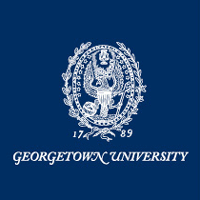 This past spring the student body of Georgetown University in Washington, D.C., voted on a proposal to add a semester fee that would go toward a fund to benefit descendants of the 272 slaves that were once owned by the university. The $27.20 fee, which would be added to students’ tuition, would contribute to the descendant community of the 272 enslaved individuals who were sold to pay off Georgetown’s debt in 1838. A bit more than $400,000 would be raised annually by the new fee.
This past spring the student body of Georgetown University in Washington, D.C., voted on a proposal to add a semester fee that would go toward a fund to benefit descendants of the 272 slaves that were once owned by the university. The $27.20 fee, which would be added to students’ tuition, would contribute to the descendant community of the 272 enslaved individuals who were sold to pay off Georgetown’s debt in 1838. A bit more than $400,000 would be raised annually by the new fee.
The referendum passed by a vote of 2,541 to 1,304; nearly a two-thirds majority of students were in favor of the new fee. But as a student referendum, the vote was non-binding and subject to approval by the board of trustees
But the university has decided not to go ahead with the new fee. Instead, it recently announced that it would mount a fundraising campaign with the goal of raising $400,000 annually. The money will be used to support community-based projects, including health clinics and early childhood education programs.
In a letter to the university community, Georgetown President John J. DeGioia wrote that “we embrace the spirit of this student proposal and will work with our Georgetown community to create an initiative that will support community-based projects with Descendant communities. This work will be grounded in our academic mission of education, research, and service; will provide opportunities for student leadership; and will be guided by extensive consultation and engagement with Descendants. The University will ensure that the initiative has resources commensurate with, or exceeding, the amount that would have been raised annually through the student fee proposed in the Referendum, with opportunities for every member of our community to contribute.”
Students for GU272, a group supporting reparations for the descendants to the slaves sold by the university, issued a statement critical of the university’s proposal. In a post on the group’s Facebook page the student groups said that the university “has chosen to ignore student demands for implementation of the referendum.” The post complained that the university’s solution “transforms the fund that was intended to repay a debt that Georgetown has owed for over 400 years into a philanthropy effort.”

